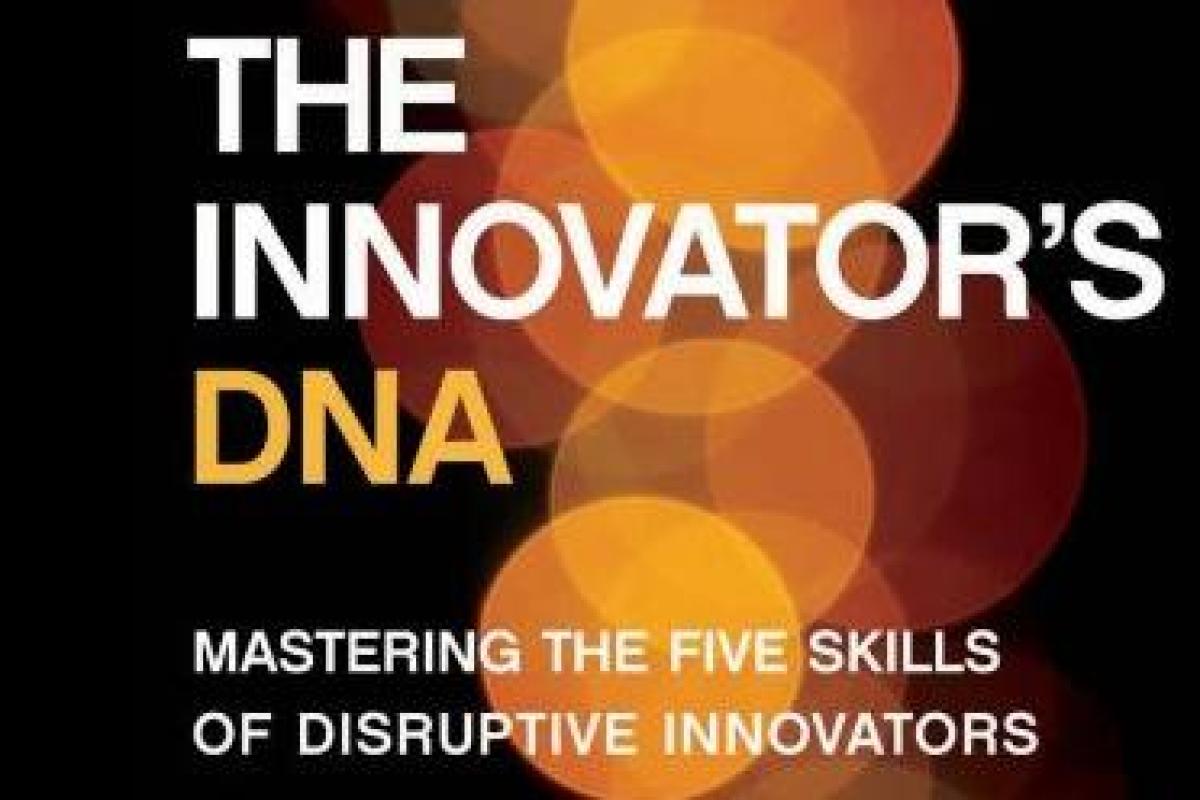I seldom have time to read business books end to end, so in The Innovator’s DNA, I was pleased to find that the introduction is particularly good.
All the key points are made succinctly and you get the gist of the whole tome in just a few pages. And the gist is that great innovators are made, not born.
All you need to do is follow five behaviours and you can become a Steve Jobs in your own right (well, almost). This is not your typical innovation book. This is from the Harvard Business Review and is based on serious academic study.
The rigour shows. I liked the professor-ish directness with which the authors lay down their ideas: ‘If you want innovation, you need creativity skills within the top management team.’ There’s no room for debate. They’ve done their research.
Clayton M Christensen, author of bestselling The Innovator’s Dilemma and The Innovator’s Solution, is the big name draw for this book with a rather dull cover. It seems, however, to be mostly written by two of his professorial colleagues, so I was worried it might lack his clear thinking accessible style. Not a bit of it. It’s cogent, readable stuff. They explain how many of the big names in business got their big ideas and they name check them frequently: Jeff Bezos (Amazon), Pierre Omidyar (eBay), Marc Benioff (Salesforce.com) and so on.
The cases are relevant and fresh as they mostly come from personal interviews with these business leaders. However, I was a little disappointed to find that their number-one case study is Apple. It is possibly the most often-quoted innovation case in history and their material is based on other books, not personal insight. It’s relevant and useful, but not as fresh and engaging as the rest.
The book’s thesis is that there are five key skills to being a good business innovator: associating, questioning, observing, networking and experimenting. They rightly say that we can’t all be Steve Jobs, but they have quantified his and others’ behaviours and smartly summarised the things they all do differently from noninnovators.
These are not genetically gifted talents, but behaviours that can be learnt.Having established the five key behaviours, I found the detailed chapters on each one were harder work. Brief excitement came from some of the case studies.
However, it’s a solid, thought-provoking book, based on the interesting notion that you can be a great innovator if you behave like one.
The Innovator’s DNA by Jeffrey Dyer, Hal Gregersen, Clayton M Christensen
Join The Marketing Society Book Club. If you are a member of The Marketing Society you could write a 300-word review for the Marketing Society’s blog. Contact Will Armstrong to get involved. Find out more about the benefits of joining The Marketing Society’s exclusive network.
